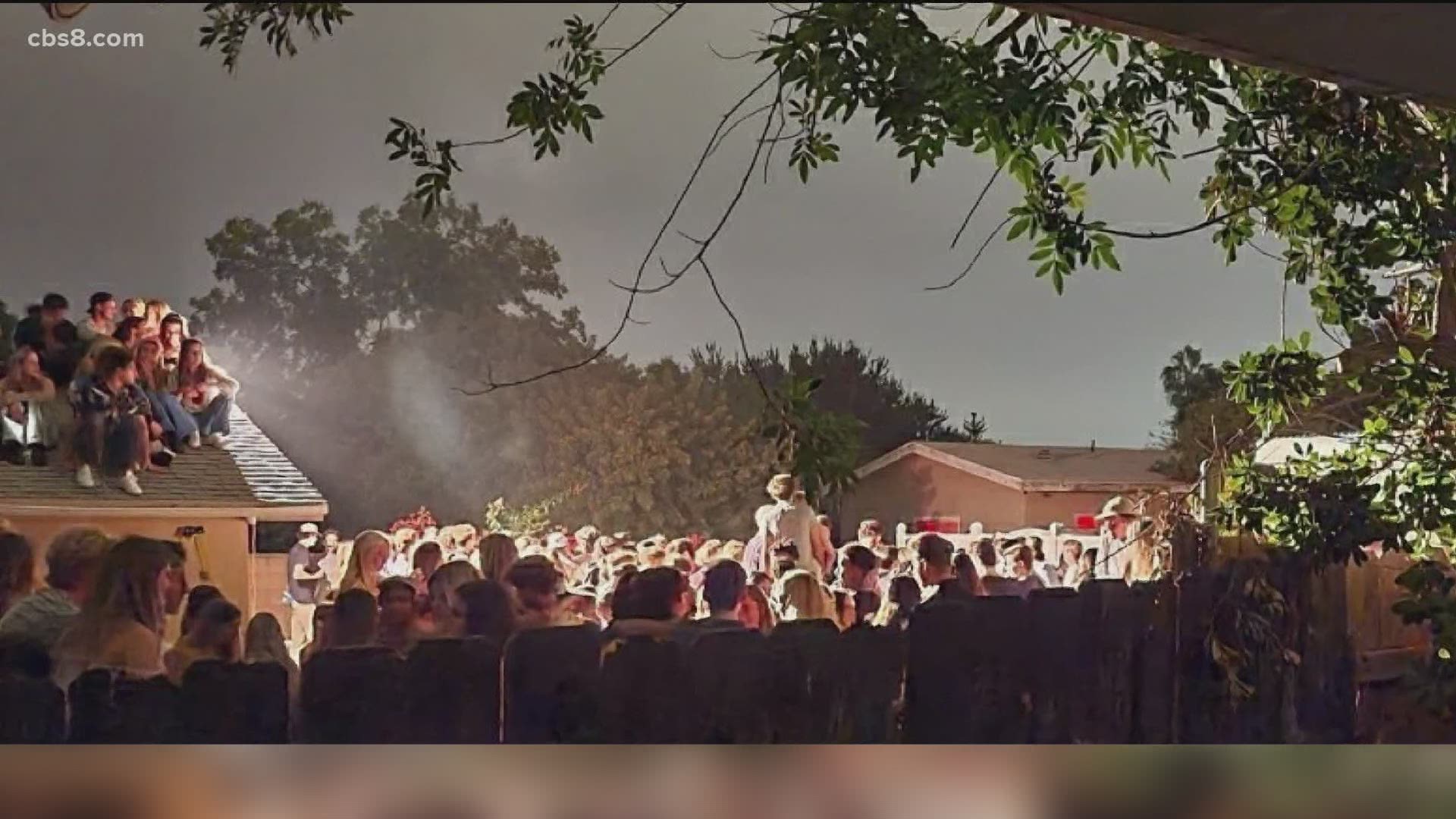Earlier this fall, Occidental College junior Luigi Maruani laid in bed anxious and angry, swiping through his phone. His 75-year-old father had just contracted the coronavirus, and Maruani felt the federal government wasn’t responding to the pandemic with enough urgency.
A post in a Facebook group for students living off-campus caught his eye.
“We’ve heard some rumblings and want to be clear about infections within our small community,” senior Avani Johnson wrote. “If you end up testing positive for COVID-19, please just be transparent about it and let the community know so we can figure out if anyone in our houses may have been in contact with you and we can contain the spread. Embarrassment is not an excuse for lack of communication!”
Maruani jumped into action, creating a Google Doc where students living in off-campus houses could anonymously share test results, and posting it to the group.
“I just thought it would be a good idea to sort of hold each other accountable and then be safe,” he recounted.
While images of maskless, partying coeds have gone viral this semester, other students are working to keep themselves and their peers safe from COVID-19 — holding workshops on virus prevention, signing up to clean and monitor campus buildings, and shaming their peers who break the rules. With coronavirus cases spiking nationwide, and campuses serving as hotspots for transmission — 6,531 COVID-19 cases have been confirmed at 78 California colleges as of Nov. 19, according to data from The New York Times — these student-led efforts could become even more important as schools plan for the spring.
In some cases, students are filling gaps in institutional responses. On Thursday, Gov. Gavin Newsom issued a new stay-at-home order that will apply to any of the state’s five regions if ICU capacity there drops below 15%, and colleges are largely planning to continue online classes in the spring. But even with remote learning, students have flocked to campus communities, and colleges have often been unable to regulate their behavior — especially off school property. University policies about whether to require students to be tested for the virus have varied, and large outbreaks have occurred on California State University campuses, including more than 1,400 cases at San Diego State and more than 600 at Cal Poly San Luis Obispo. By helping to educate their peers, students say, they can have some measure of control in an uncertain situation.
Cal State Long Beach senior Megan Winzler has been trying to keep her fellow students immune from misinformation spread on social media.
A microbiology major and president of the university’s American Society of Microbiology chapter, Winzler is fluent in viruses. She said she felt responsible to share her knowledge after seeing some students exhibit questionable pandemic behavior.
“I have an acquaintance on Instagram who was like, ‘Oh, yeah, it’s date number three,’ and that is the opposite of the guidelines. You’re not supposed to be meeting new people without your mask. They’re probably going to, you know, get it on — and that’s definitely a COVID violation,” Winzler said.
In response, Winzler rallied the members of the previously dormant club to create a series of Zoom workshops educating students on pandemic safety. At the first one, titled “Coffee with COVID,” Winzler went over everything from misconceptions about the virus to the importance of wearing the correct mask. Six people attended, she said, asking questions about how to understand case number data and the effectiveness of mask-wearing.
Some students are motivated by an awareness of how their own actions affect the residents of surrounding neighborhoods. The day before Halloween, the University of Southern California’s undergraduate student government sent a message to the campus community urging them to follow local health guidelines banning parties.
“Our campus is located in a neighborhood of Los Angeles that is home to a diverse group of Angelenos,” the message read. “It is well documented that COVID-19 has had a disproportionate impact on communities of color, and our actions as USC students directly impact these very communities that we interact with daily.”
USC sophomore Jacob Tamkin was diagnosed with COVID-19 in September. Once he recovered, he started hearing about people donating their plasma, which can help patients battling the virus.
Working with USC administrators, faculty and students, Tamkin created a flyer promoting plasma donation, which he plans to circulate throughout the USC community.
“As a USC student and an LA native, I thought generating a plasma drive with USC students would be not only a great way to give back to Los Angeles as a greater community, but also the community surrounding USC, which is a predominantly lower income neighborhood,” Tamkin said.
For Cindy Nyugen, a graduate student at UCLA’s Fielding School of Public Health, it was the experience of her own Vietnamese-speaking family that inspired her to join the school’s COVID-19 Multilingual Project. A team of students and professors run social media pages in English, Spanish, Korean, Vietnamese and Chinese with tips for staying healthy during the pandemic, and pass out flyers in neighborhoods around the university.

